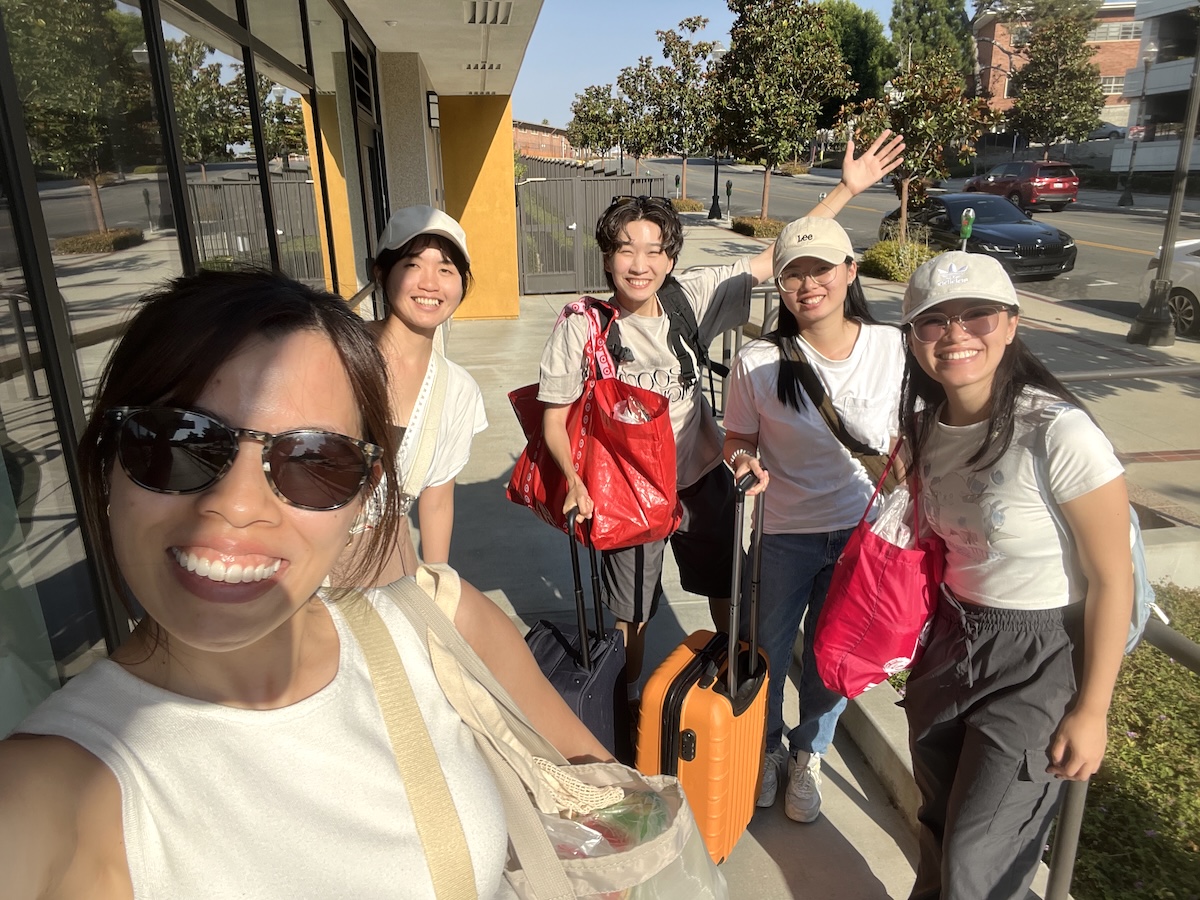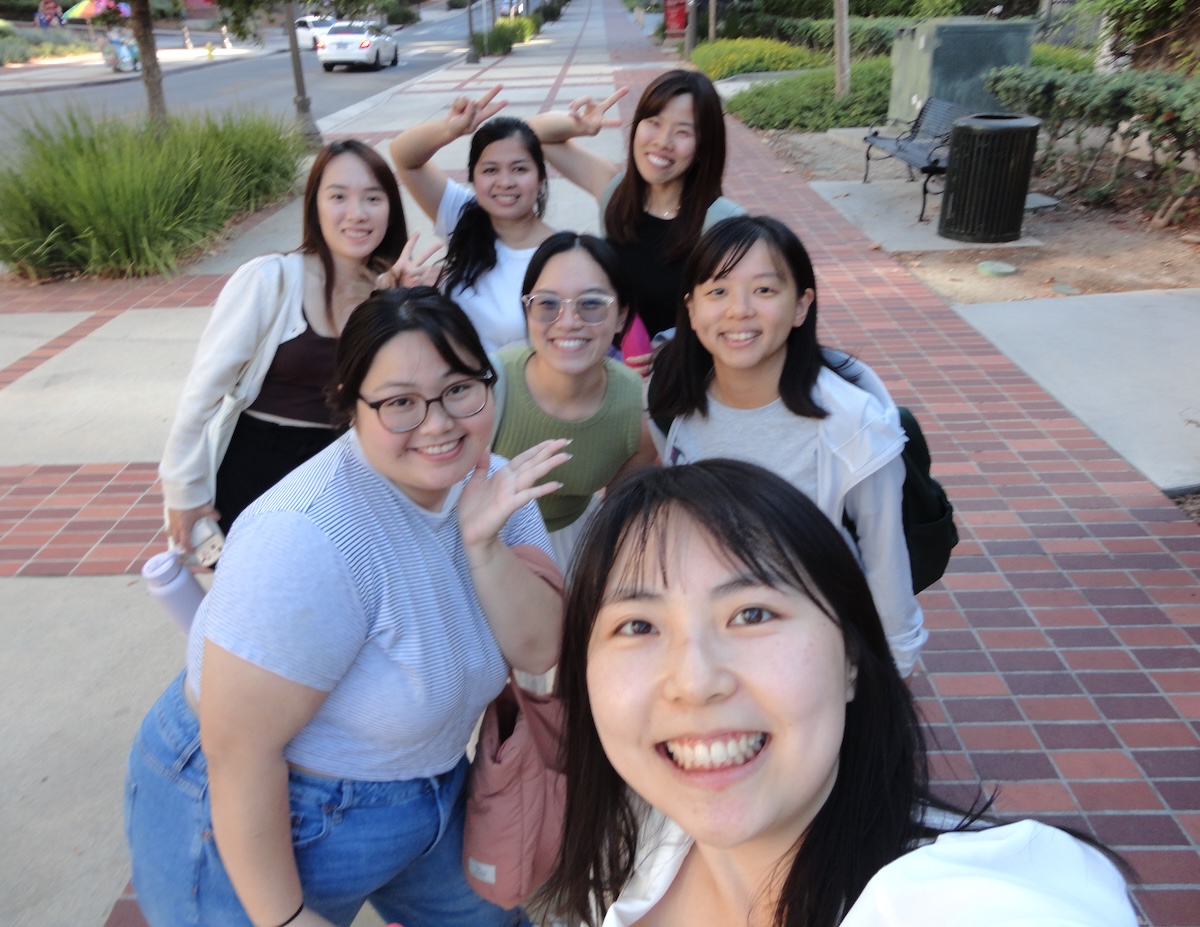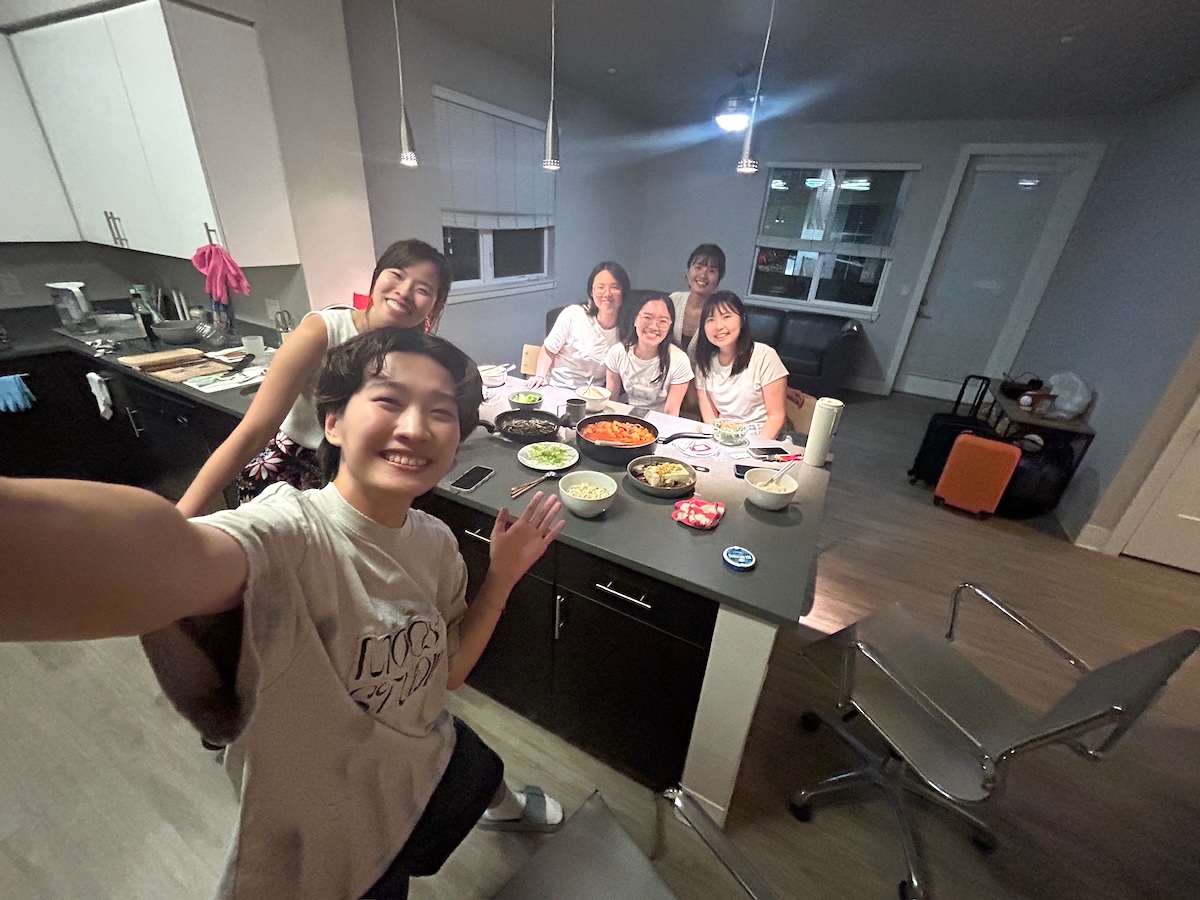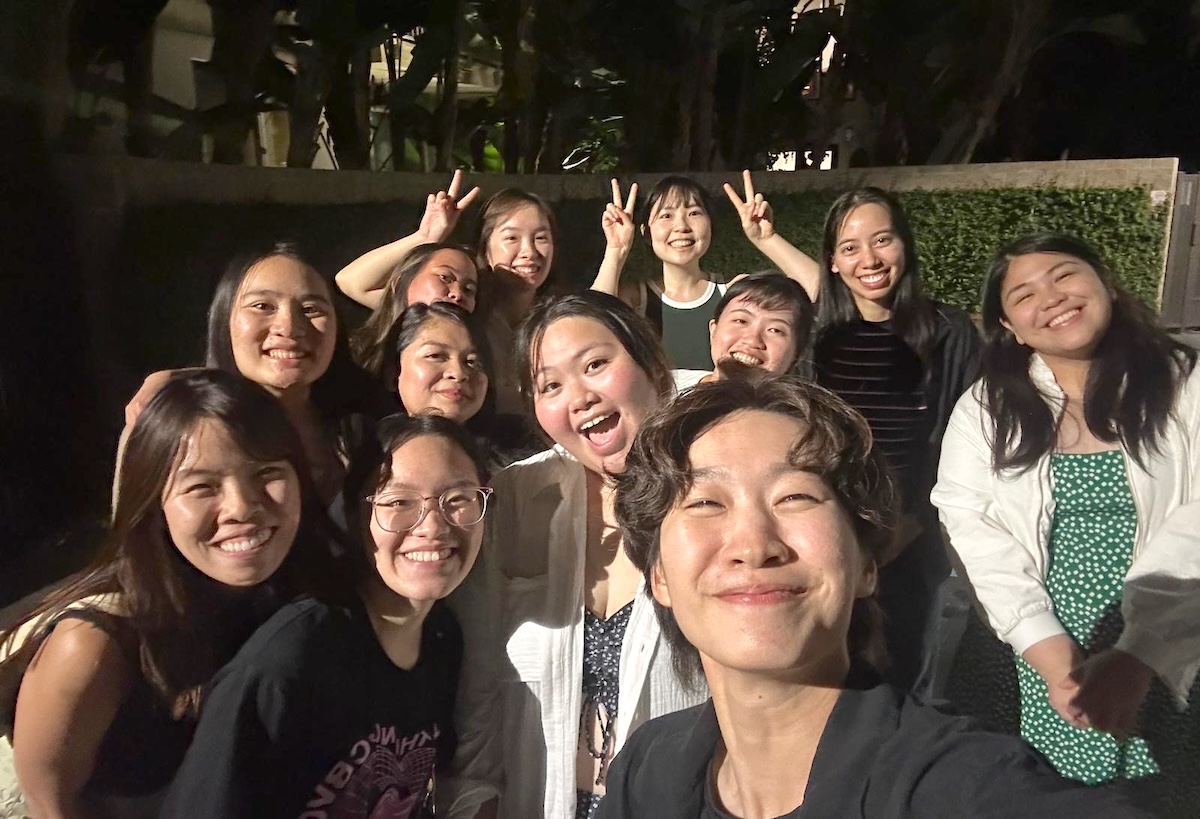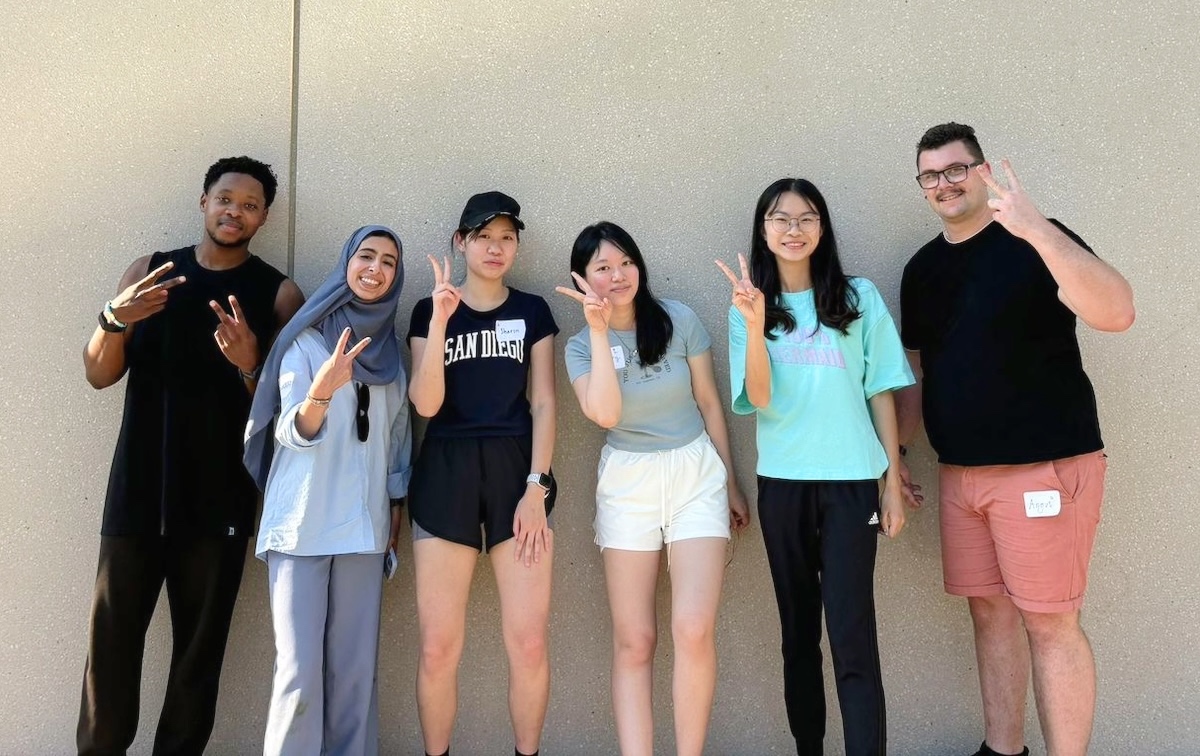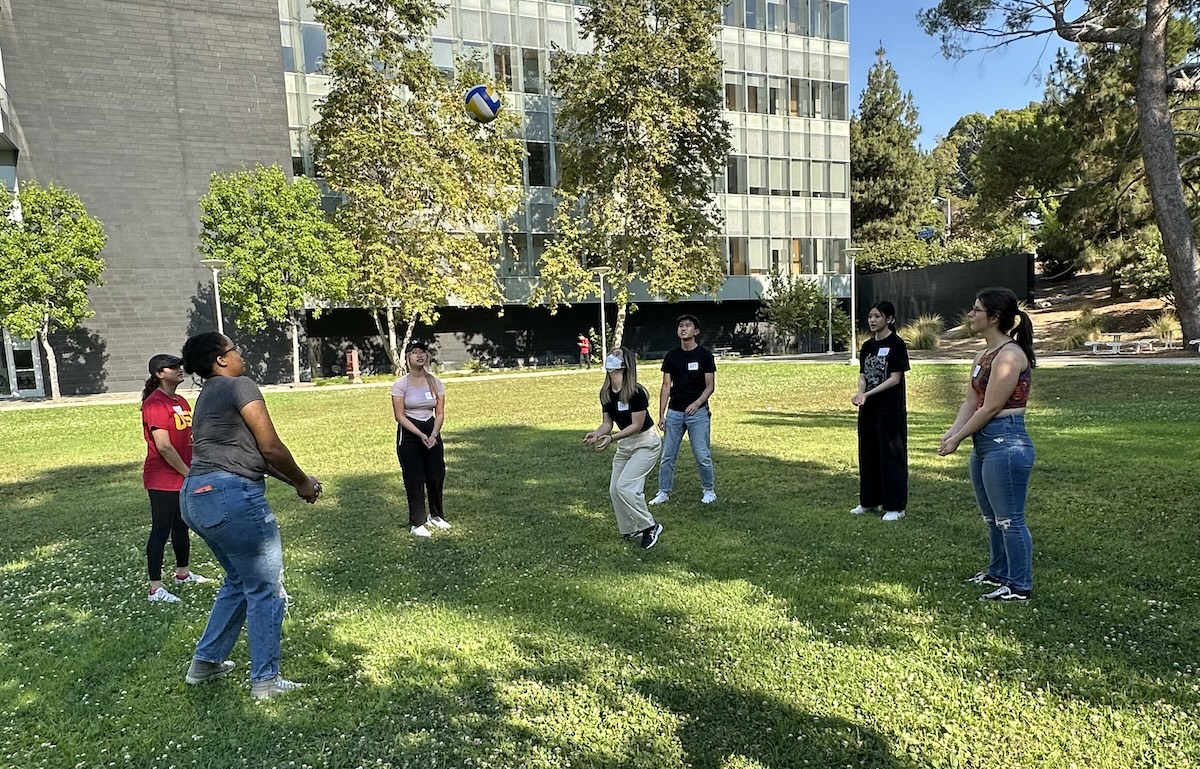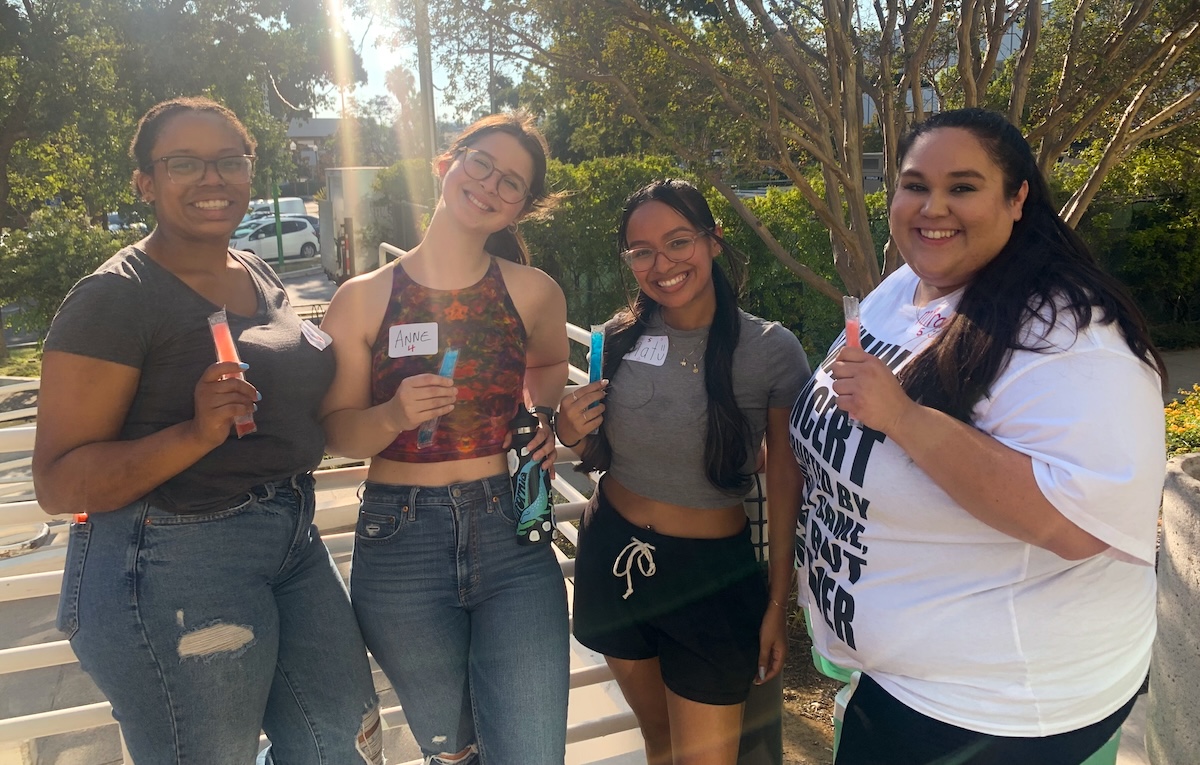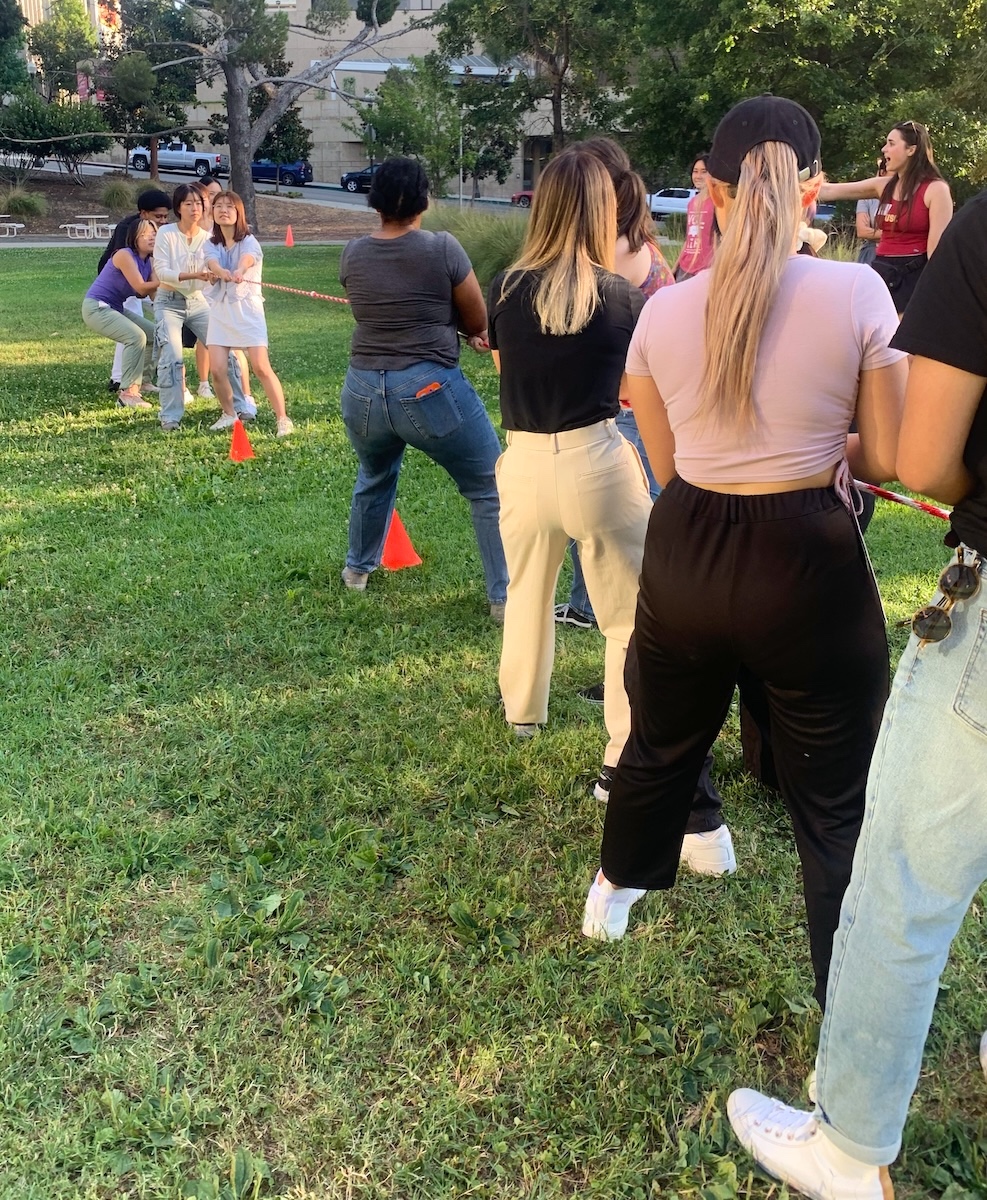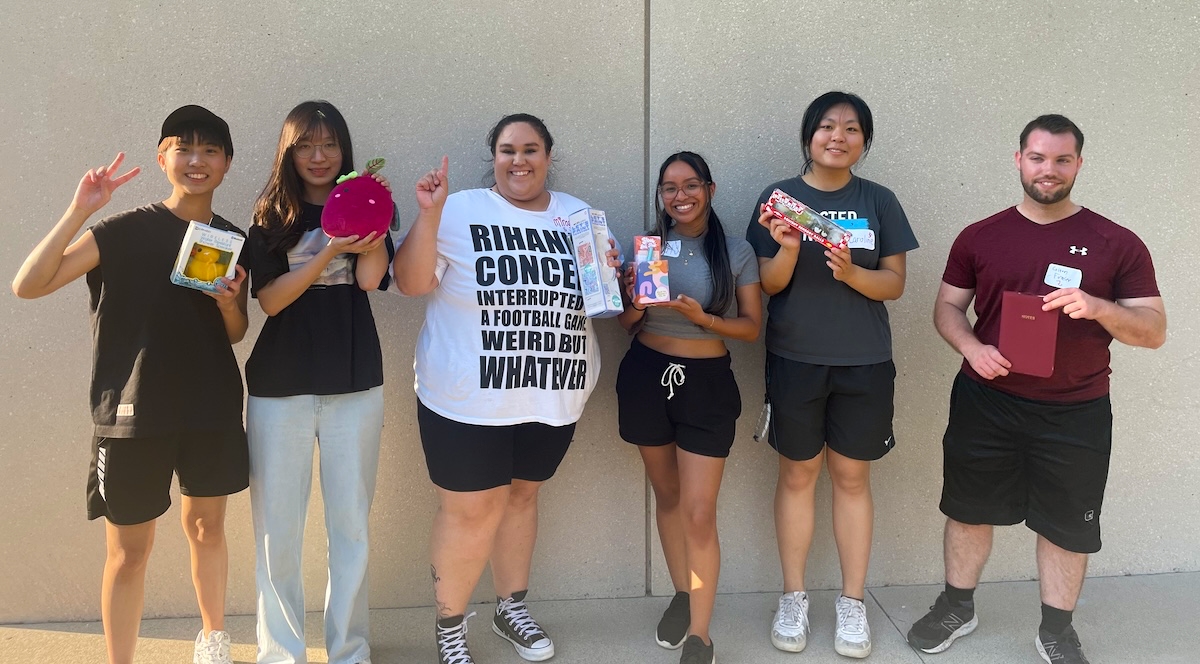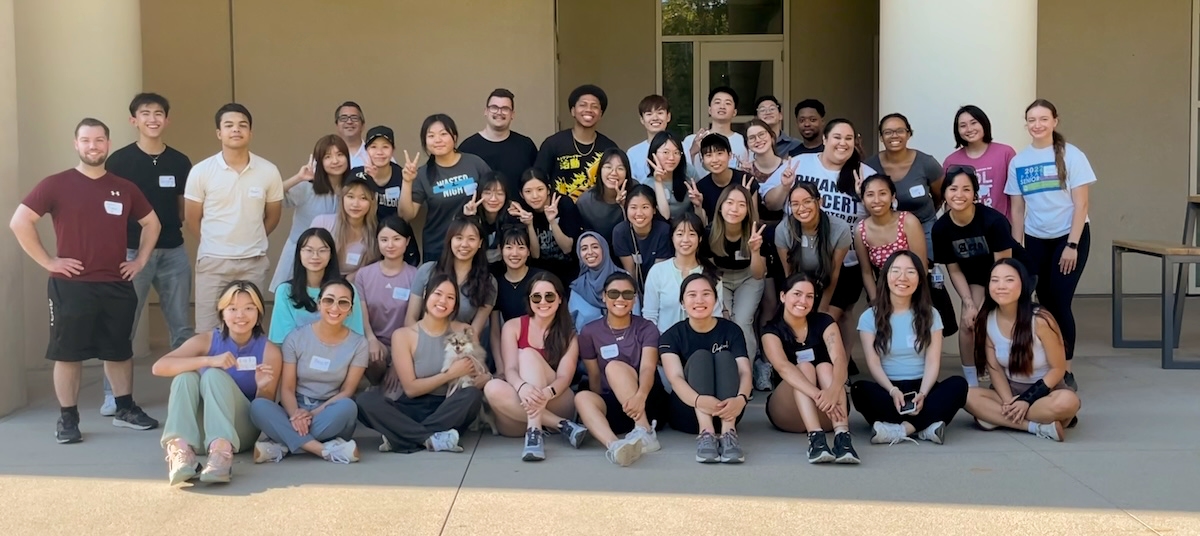Student Blog
International
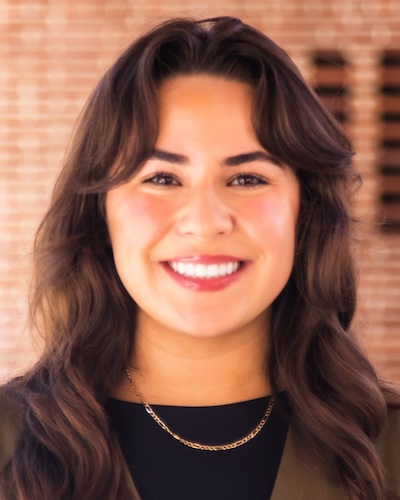
Learning and Traveling ⟩
February 6, 2025, by Kimberly Rochin
Getting Involved International
When I reflect on the standout moments from my time as an undergraduate, my two Maymester adventures immediately spring to mind. From soaking in breathtaking scenery to meeting some truly remarkable people, these journeys offered me a front-row seat to the diverse ways societies function and approach healthcare far beyond U.S. borders.
Exploring Argentina
During the summer of 2023, I enrolled in a Spanish course focusing on the immigration, history, and culture of Argentina. While exploring these themes, I was particularly struck by the local social dynamics. Buenos Aires is teeming with “third spaces” — museums, art galleries, and community centers that serve as social hubs. To my surprise, many of these spaces were free or had minimal cost for public entry.

Views in Argentina
As a tourist, I loved exploring these gems as they were a perfect fusion of how work and leisure intertwine. Another shocking factor was observing how shops and businesses often pause in the afternoon, allowing everyone to enjoy ‘merienda,’ a tea-time break shared with family and friends.
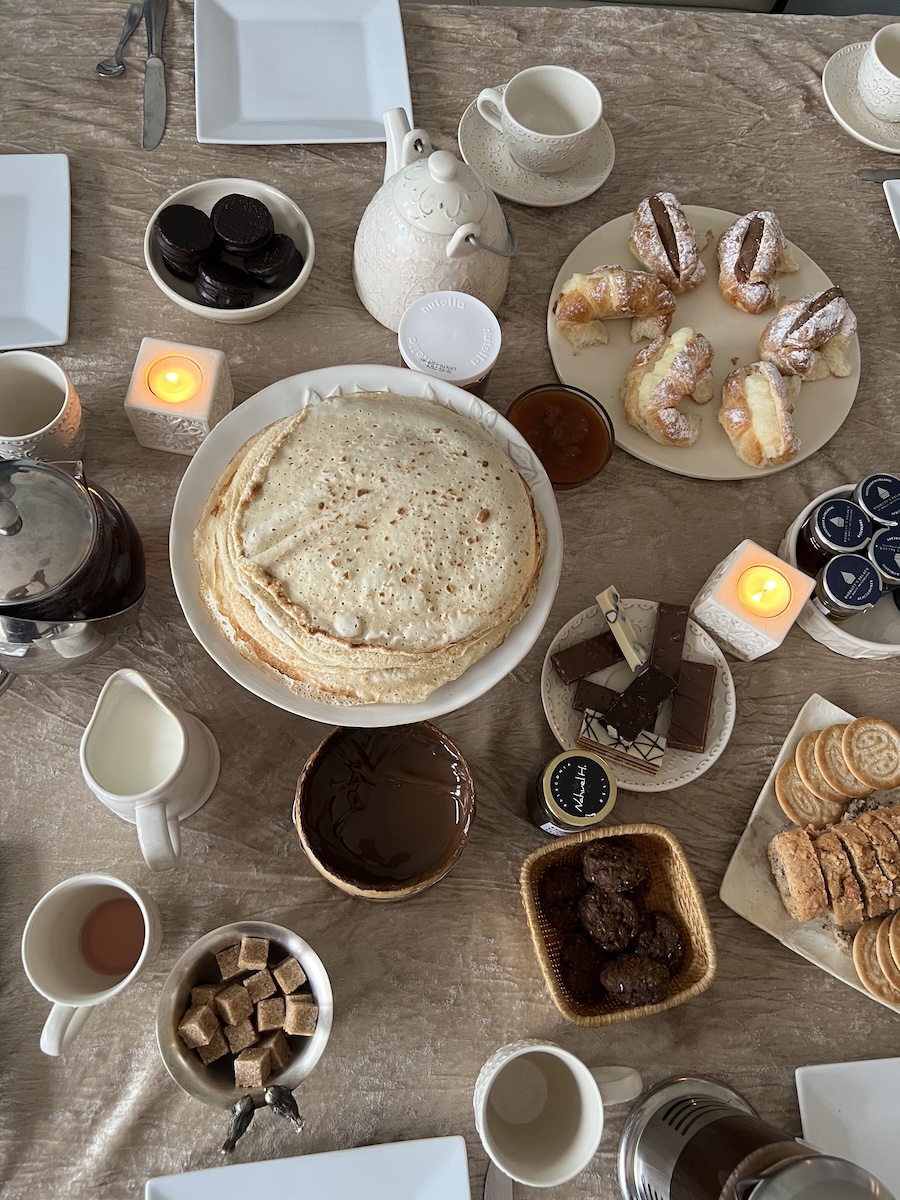
Merienda with my host family
Learning About Preventative Healthcare in Costa Rica
My journey continued this past summer in Nicoya, Costa Rica, where I participated in a Gerontology course examining the country’s famed “blue zones” — regions where people live significantly longer than the global average. Although I was not a fan of the mosquitoes and the occasional snake spotting in our hotel rooms, this experience helped me understand the power of preventative healthcare measures and a collectivist approach to well-being.
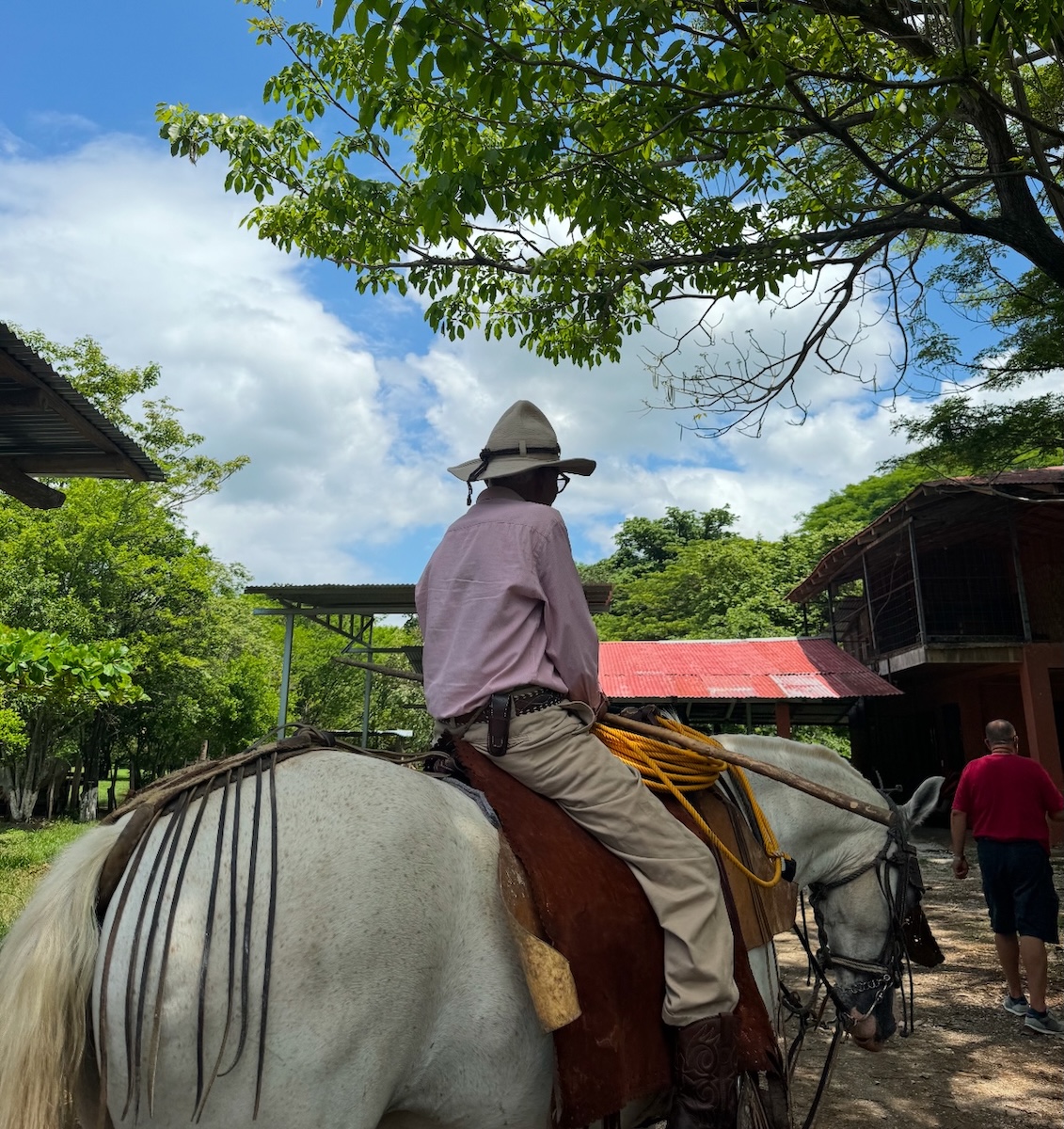
Meeting a centenarian man
In Costa Rica, the vibe is all about community and preventative health, a refreshing change from the more reactive healthcare models I’d seen in the U.S. It’s like they’re all about dodging the raindrops instead of waiting to get wet! This eye-opening experience really drove home the importance of weaving health-conscious choices into the fabric of everyday life. It’s a philosophy that meshes perfectly with the holistic spirit of occupational therapy.
So, what’s next?
Well, of course, I want to keep traveling! I mean, who doesn’t? As I continue my journey in occupational therapy, I am inspired to keep traveling and connecting the dots between cultural practices and health outcomes. Each trip offers new perspectives and strategies that can be adapted to enhance the therapeutic environments we create. By incorporating global insights into my studies and future practice, I aim to advocate for more integrative and culturally aware approaches to healthcare.
A piece of advice: if your undergraduate program offers a study abroad experience, even as short as a couple of weeks like mine, take advantage of them! It’s an invaluable opportunity to broaden your horizons and gain insights that you can’t get from a textbook.
⋯
What I Learned in a Week as a Medical Volunteer in Panama ⟩
December 13, 2024, by Guest Author
Classes Community Diversity Getting Involved International
By Carly Martinez OTR/L, USC Chan Post-Professional OTD student

Carly Martinez OTR/L
When you read the name of the country Panama, what comes to mind? If you’re anything like me until about a month ago, your knowledge consists solely of the famed Panama Canal. After spending 8 days there as a medical volunteer, I won’t pretend to be an expert, but I can give you a brief glimpse into my journey.
During the first semester of my post-professional OTD, I decided I would take what I thought would be my final elective, MEDS 577, Global Palliative Care with Dr. Ben LaBrot. It felt significant for me as a practitioner because I had learned a little bit about hospice and palliative care through my master’s program at USC, and knew that occupational therapy (OT) had a role to play in that area. At the same time, it still felt like we had only skimmed the surface. Through that course, I learned a lot about autonomy and dignity, values my professional OT education had espoused, however, this was a deeper dive into this particular context.
A few weeks into the course, Dr. LaBrot shared that he would have to record class since he would be in Panama. After class the following week, some students stayed after class to ask the professor about another course he taught. While unintentionally eavesdropping, I learned that he was the founder of a medical volunteering organization, Floating Doctors, based out of Panama. Excited at the possibility of going abroad again as part of my OT education, I asked if his program accepted occupational therapists. He was enthusiastic about my participation and clearly an ally of occupational therapy through what he shared in the curriculum. It would count as my final elective, and I could get credit for volunteering through MEDS 554.
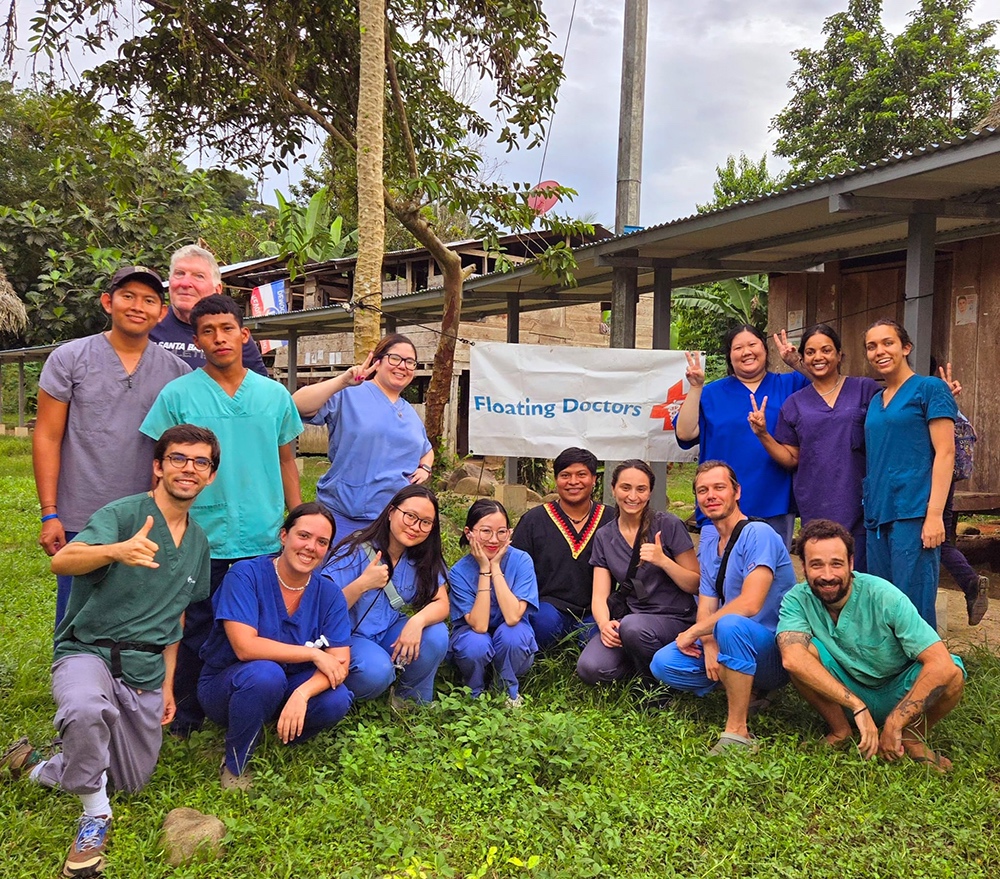
Volunteers for the week including physicians, a veterinarian, a dentist, medical students, and one OT.
Months later, I would find myself in a rainforest, translating for a classmate who graduated from medical school in Indonesia, learning how best to explain things to individuals who grew up in a completely different context than myself. Floating Doctors works with the members of the Ngäbe, an indigenous population in the Bocas Del Toro province of Panama. This region is designated as part of the Ngäbe-Buglé comarca, an officially recognized province that is part of how the nation is divided, similar to statehood, which allows for self-governance among the indigenous population. To get there, I flew from LAX to Panama City, then travelled to a second, smaller airport in Panama City to fly to Bocas del Toro, an island in the northern archipelago region of the country.
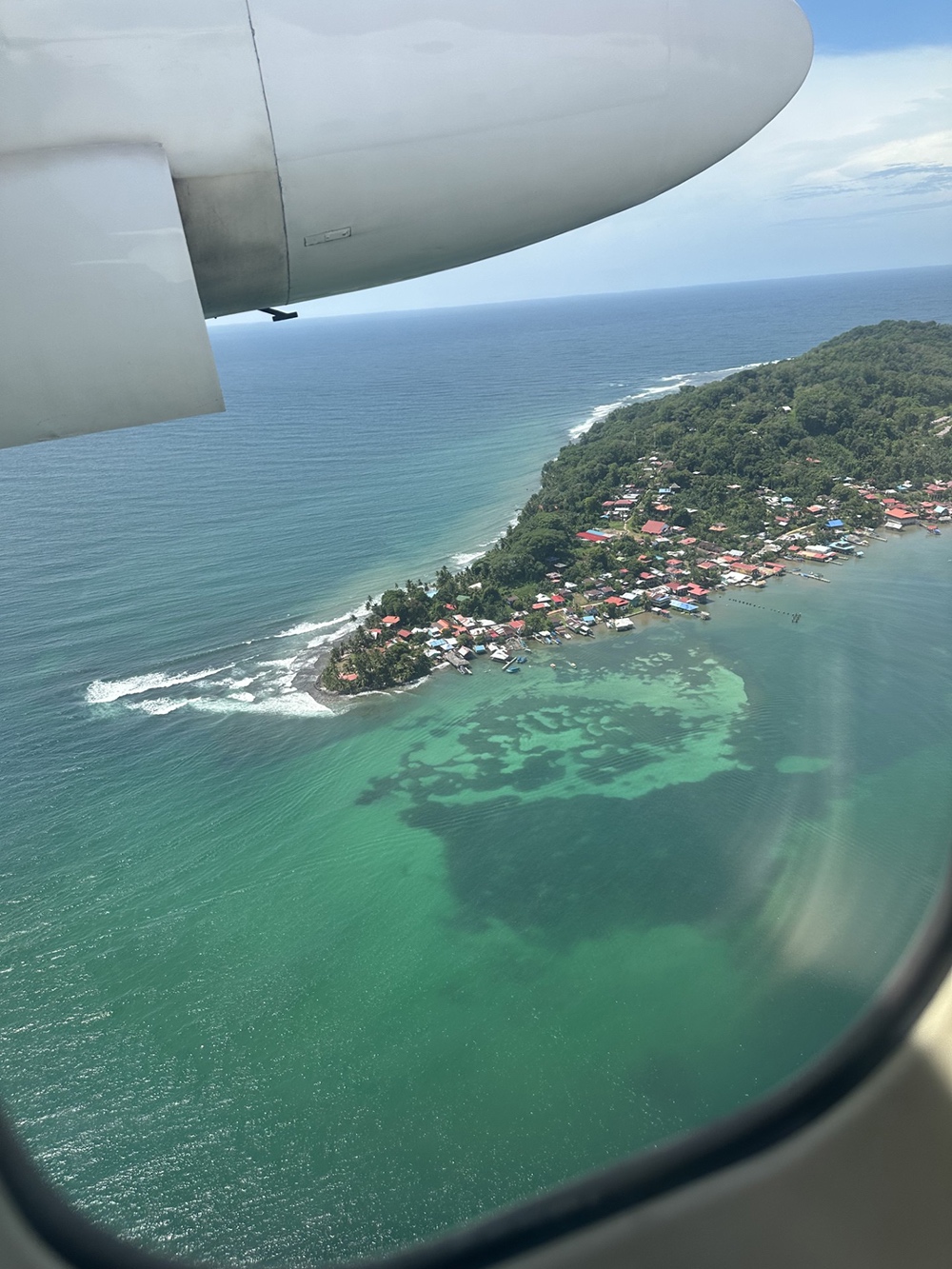
Preparing to land in Bocas del Toro
During clinic, we slept outdoors in the rancho where we provided services in hammocks strung from metal beams and bathed in the river, as do the community members. However, I will say that it was not the most rugged camping experience of my life. We had indoor plumbing, could purchase wifi from a nearby home, and had meals cooked for us by local women. Patients brought goods to sell, like the best chicken empanadas I’ve ever tasted, sizable chicken tamales wrapped in banana leaves, and artisanal breads. Some families told me they walked for a day through the mountainous terrain to be seen by the doctors. Did I mention that the weather hovered around 90 degrees and 100% humidity? The patients came well-dressed, with women in nice dresses and men in polos and jeans. I got the feeling they were dressed up to see us, but also because they would be seen by many other people who were also attending the clinic.
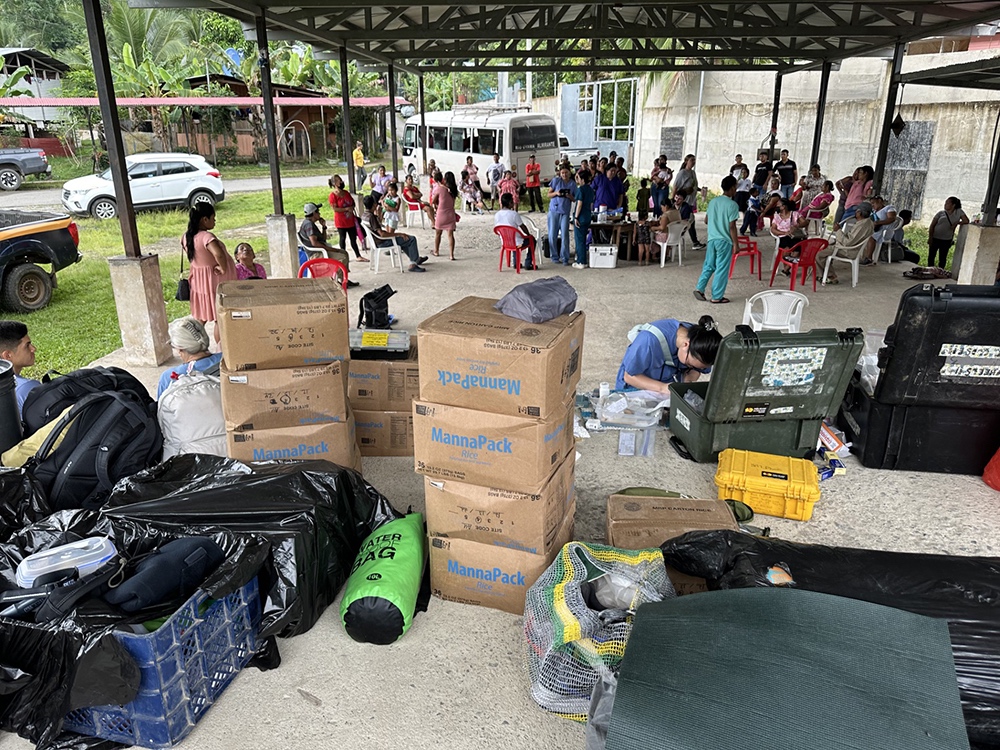
Preparing for a day of clinic. Folks were lined up before we arrived.
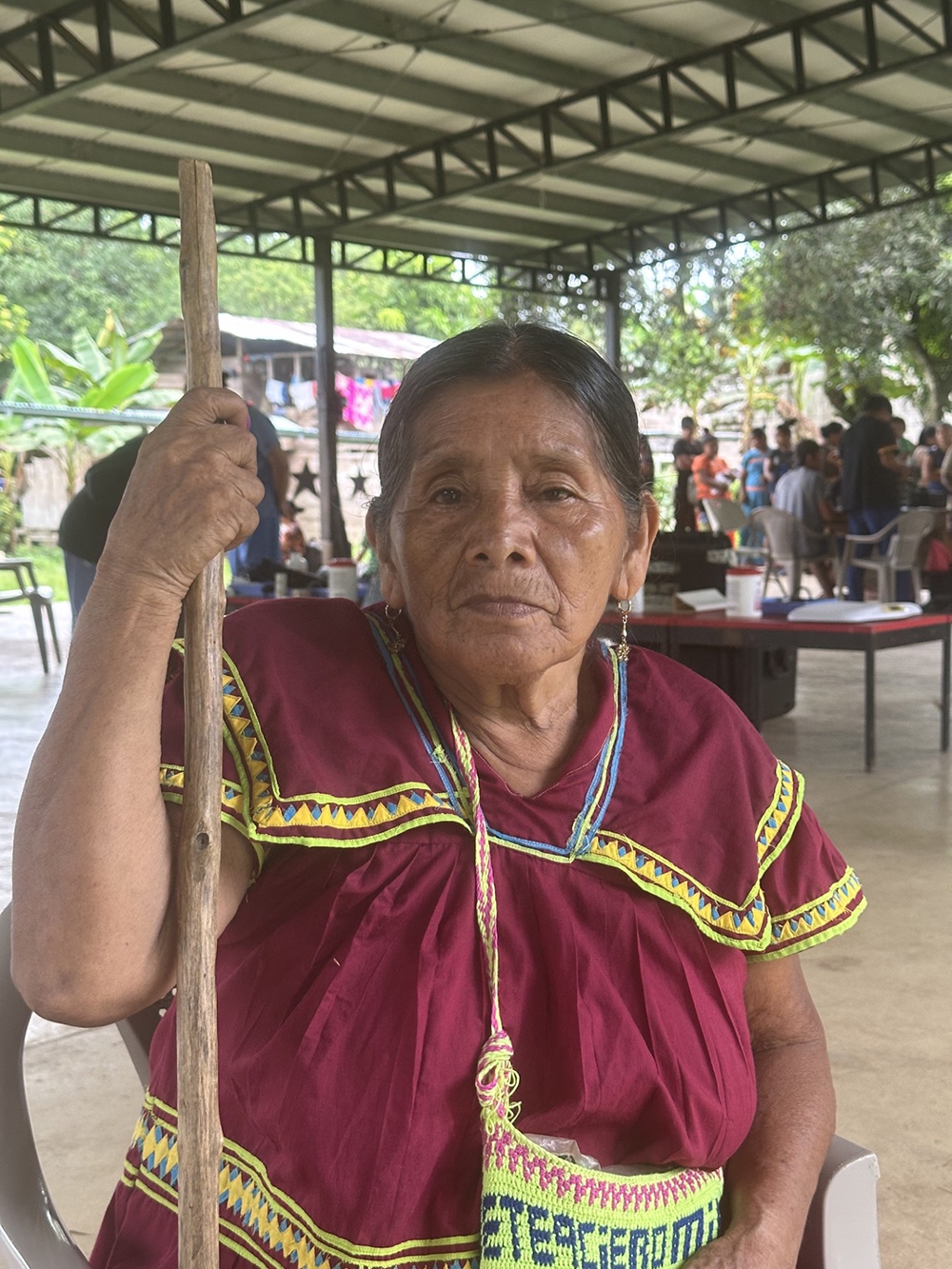
A visitor to the clinic wearing a traditionally-adorned dress (photo taken with permission).
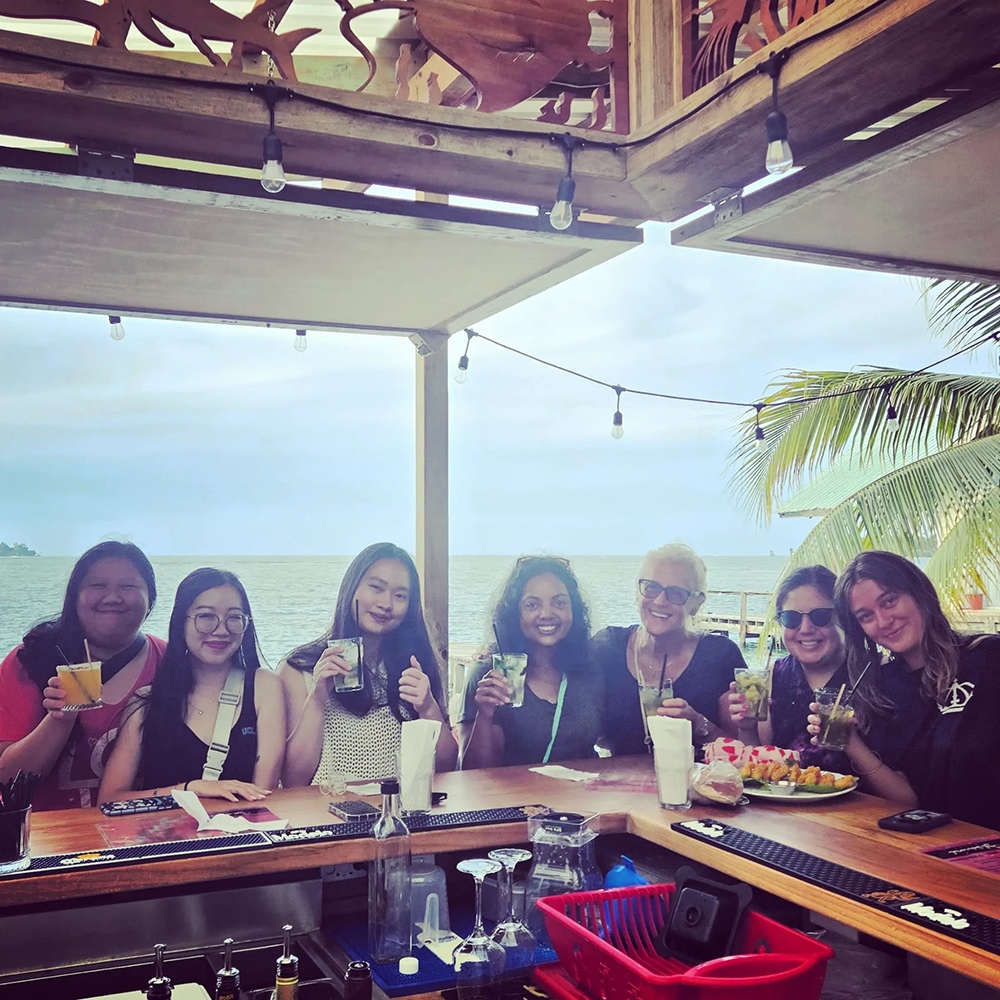
Enjoying refreshments (with ice!) with other volunteers in Bocas after a successful week of clinic.
Visitors to the clinic generally fall into two categories: fast lane or chronic. Fast lane is for new or relatively simple cases, such as needing paracetamol to manage fever, albendazole for concerns about parasites, or birth control injections. Chronic patients are seen every three months, as the team returns to each site regularly, cycling through the 28 sites they service. Though the providers change, there is still consistent care for diabetes, hypertension, and asthma, to name a few of the more common conditions. Patients can have their names put on a list for a doctor who comes by to perform cataract surgery as part of another program. Referrals can also be given in cases where a patient requires more or specialist care, such as the case of a 6-year-old girl who seemed to be struggling in school, based on her mother’s description. Though I did an informal writing assessment, she would need more testing to determine if she was reaching developmental milestones, something the organization is not equipped to offer at this time.
To be seen by specialist medical providers, they would need to go to a major town nearby. Although this community had a medical clinic nearby, the resources there were limited. Travel to David, a town with more medical resources, would require a bus ticket and potentially a stay in the city, a prohibitively expensive expenditure for some of the patients. Boquete is closer, though it is not as well-resourced and still requires a bus ticket to get through the mountains on rocky dirt roads, which do not have lights, limiting travel for safety reasons.
This trip felt challenging to my professional identity. As a new practitioner, I worry about the role OT can play in different contexts. The lead medical provider for the week was not familiar with OT, or Ergotherapy as it is often referred to in Europe. He told me that this does not exist in his home country of Russia. The World Federation of OT only credentialed the University of Panama’s OT program last year, in 2023. I wondered about the relevance of the profession to people whose activities of daily living (ADLs) likely consist of more life-sustaining occupations than mine do, such as gathering water or washing clothes by smacking them against rocks in the river, in addition to household management tasks like washing dishes and cleaning the house.
I could see the applications of OT for those who worked cutting bananas, as they suffer from repetitive motion injuries, for children in school, and likely, for individuals with mental health concerns, if I were to speculate. However, I also acknowledge that I don’t really know much about their everyday lives because I didn’t have the opportunity to get to know them in the ways that would be necessary for an OT evaluation. I longed to know more about what an average day is like, as this would allow me to begin imagining what role occupational science (OS) could play in trying to understand what life is like for the Ngäbe. If OS has taught me anything, it is that I am not an expert on the culture of the Ngäbe. In order to work with a population in a way that garners buy-in, one has to try to understand the values to support what is important to their patients.
All of this is not to paint a picture of an area with fewer resources; after all, there are rural areas of the US with limited access to hospitals or routine medical care. Instead, I hope that Panama provides opportunities for OT and OS to continue to develop in multiple contexts, ranging from the traditional academic experiences OT graduates may have in the larger metropolitan areas, to the volunteer OT services with Floating Doctors, as well as others yet to come.
For my final occupational therapy doctorate (OTD) project, I created a set of OT practice guidelines or a white paper, in support of the development of OT services for Floating Doctors. The hope is that this will allow for the expansion of OT services within the organization, encouraging more OT volunteers to attend, and familiarize the individual medical providers with the scope and potential interventions OT can provide. It will also be part of the information Floating Doctors provides the Panamanian government to continue its services there.
⋯
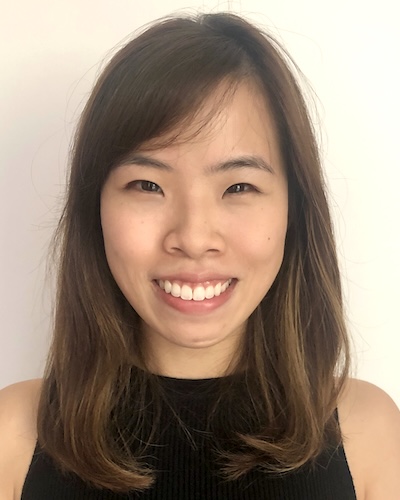
Taking my first exam, more than a decade later ⟩
November 12, 2024, by Tanya
Beginnings and Endings Classes International
The anxiety that hit me on the morning of my first exam in a long time was one I had not experienced, one that felt so foreign. Perhaps it is because I was not used to it as it has been a while, and not to sound dramatic but it felt worse than going for a job interview or presenting in front of a large audience. Everything felt so uncertain and unexpected, and I, as a person who valued control and preparedness, felt quite lost and nervous.
Even the platform that the exam was on seemed foreign, with the entire exam being digitalized. This is a stark contrast from the days when my biggest worry was that I had multiple sharpened 2B pencils to shade the correct option in a multiple-choice exam. I was amazed that the paper could be downloaded before the commencement of the exam, and the exam software came with tools such as the highlighter and timer visible on your screen.
I was overcome with a sense of relief mixed with anticipation of how I performed once I saw the green screen notifying me that the submission was successful on my screen.
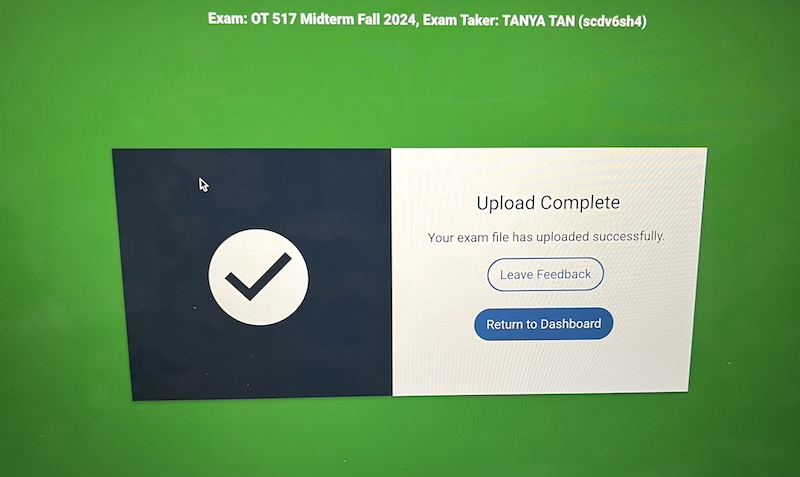
After my first Sensory Integration mid-term exam — taken with permission from Dr. Gunter upon submission
Given the option, I would have much preferred to have written a paper instead, as this would have allowed me to weave in my thoughts and opinions supported by evidence. When I reflected on the entire experience, I would say my anxiety stemmed from the unfamiliarity of the advancement in technology as well as the entire examination process that felt so foreign rather than the actual content. And this was yet another way for me to learn how to adapt to changes and move with the times.
If you have not been on the academic journey for some time, here is what I did to help deal with these changes. It did not remove the nerves completely, but it helped me settle into it faster.
1. Having stationaries that help with note-taking
If you are like me and prefer to organize and write down notes on paper to visualize the information learned, it will be helpful to bring some writing implements or sticky notes that you are used to back home.
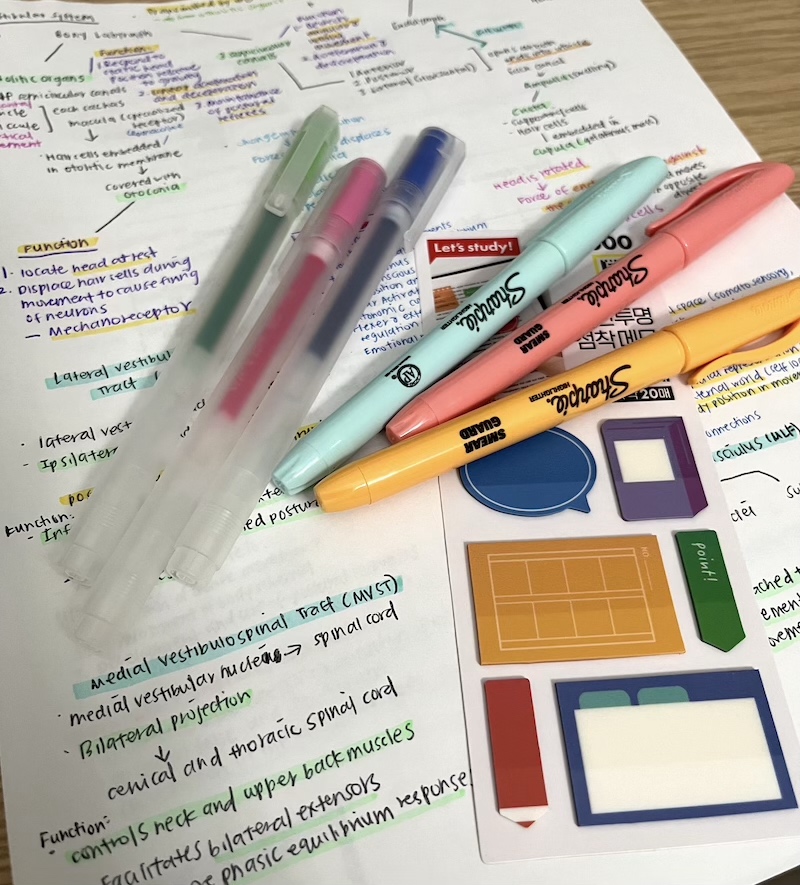
Some of my writing implements that I brought over from Singapore
2. Follow your usual sleep pattern
Hearing some of my classmates share about the later times they sleep and how they feel more efficient or productive, made me consider this choice and attempt it. I usually head to bed by around 11 pm and decided to try staying up till 1 am. Sad to say, this was counterproductive, and I was less efficient and felt even more lethargic over the next 2 days. Know your body system and do what is best for you, you do not have to change your routines despite adopting a new role.
3. Enjoy leisure amidst the exams and assignments
Along with midterms also come assignment submissions, this can be a lot, and you may feel overwhelmed by it. It may feel that every minute should be channeled to studying or reading another article, however, engaging in leisure does clear your mind and refreshes you. It is the little things that can have a greater impact.
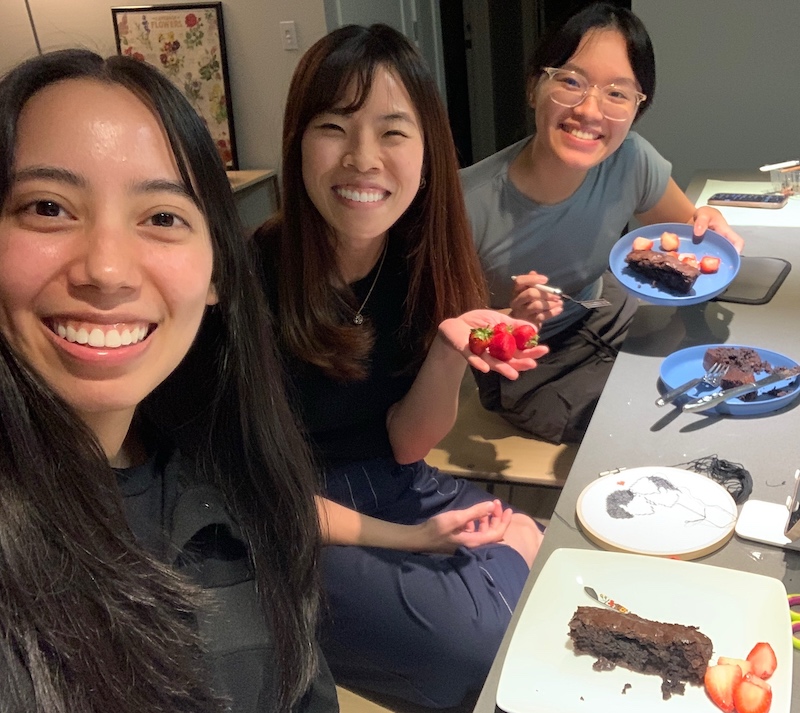
Here is a picture of my housemates and I enjoying the brownies that we baked. It took longer than expected but it allowed us to chat, laugh, and relax while enjoying the process.
4. Planning ahead to ensure you have sufficient groceries
I usually travel on the bus to get my groceries over the weekend, as it is nice to browse and select my items. However, it can be a little time-consuming when it is ‘crunch time’ due to the additional time spent on commuting. It is helpful to plan and purchase additional groceries with a longer shelf-life to last for the upcoming week. Another helpful way is to purchase your groceries online. There are various stores online, such as Instacart, Weeee, etc that are helpful when other factors are deterring you from going out.
5. Be a little more courageous
That’s what I tell myself when I do not understand the concepts or have questions about the topic being taught in class. It could be my personality or how I am used to academic lessons back home that make it more challenging for me to ask questions. However, I would encourage you to raise your hand and ask, or go to an office hour appointment to clear the doubts that you may have. If you don’t, the person that is at the losing end will eventually be yourself. As they say, knowledge is power, so do not leave the module with an unanswered question.
Despite various deadlines that you need to meet, it is important to stop and pause, and also look at your surroundings as you commute on the shuttle bus or to your apartment. LA has very beautiful sunsets and skies, but you will miss it if you are just focused on thinking about your to-do list.
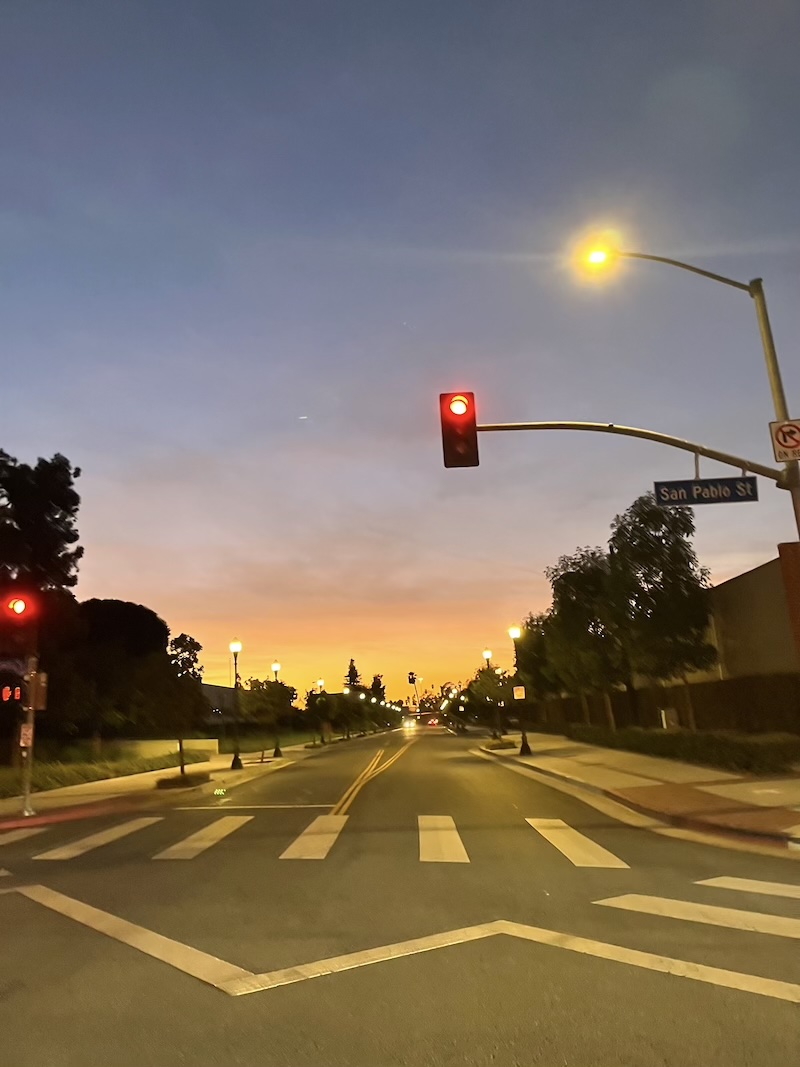
Sunset on the way to an evening class
⋯

From Worker to Student: A New Occupation ⟩
September 26, 2024, by Tanya
Beginnings and Endings Community International Life Hacks Living in LA School/Life Balance
It is week 3 of school and perhaps with the exploration of Occupational Science, it made me reflect about the current journey I’ve chosen to embark on; a new occupation. I am no longer a working adult but one who is back in school — an adult student. It has been approximately a month since I said goodbye to the familiar, the known and the expected. Things are no longer as familiar, and navigating through this change has not been the easiest, to say the least.
I have stepped into the unknown and the unfamiliar in the decision to pursue the Post-Professional Master’s degree here at USC Chan, and if I were to use the Person-Environment-Occupation (PEO) Model (Law et al., 1996) to frame my life, you could say that I am still learning to maximize the fit to attain the same occupational performance I had back home. There is not just a literal change, in the physical change in environment, but also a change in my social environment. Social supports that I could turn to immediately had a 15 hour time difference. Even though this is not the first time living alone in a foreign country, it does not get any easier. There are some days I still get teary looking at pictures or Instagram videos and wish I could teleport home to be part of a special event, to comfort a friend or just to get a physical hug from a loved one. Leisure activities which I could engage in frequently are harder to access as I do not drive, or are things that I could not bring over (e.g., my sewing machine).
Even the most simple things require unlearning and relearning — take the metric systems — I am still learning how to convert Fahrenheit to Celsius, Pounds to Kilograms and Miles to Kilometres. It does get better with practice and of course, consulting with Google Converter, especially when I am at the grocery store, has been such help to me. Exploring the transportation systems might be a little tricky, but I am thankful that I got the chance to explore with my course mates, who are becoming a different sort of support system.
Having a new occupation as a student comes with new expectations and responsibilities. I used to read journal articles that I received from my monthly BJOT subscription or when I was reading up on the evidence of interventions that I would like to use. However, being a student means reading and trying to synthesize the contents of the articles for each module that you take. Living alone also means that that are other things you need to manage and set aside time for, such as meal-prep, household chores, figuring out how the dryer works and grocery runs.
Here is another picture of us on our longest day of classes and testing out a classmate’s new digital camera
Though the Occupation and Environment has changed, one thing that remained constant is the Person (that’s me). The changes might seem overwhelming initially but your abilities that enabled you to navigate the challenges, difficulties and new seasons in your life in a place of familiarity and comfort do not change amidst the change in the environment. The routines that you have created for yourself back home can also be replicated here — it just takes a little time to figure and analyse what is better and suitable. I’ve resumed my curiosity in cooking and explored the different dishes and cooking hacks on social media. This has not only provided me with affordable and delicious meals, but it has been a nice and relaxing activity and a way for me to connect with my housemates.
Being a planner, I have plans to crochet and hit the gym with my house/course mate Kate — we will get to it soon! Being away makes you grow as an individual as you reflect and learn to see things from a different perspective — who knew that just having dinner and chatting by the pool with friends is something so enjoyable and refreshing, an activity that I hope will be part of my new routine. Change is hard but it can also be an experience that will shape, develop and make you a better OT as you view things from new and different perspectives. It is also important to be intentional, not just here, but with the people back home, technology in this case is truly a blessing. Being 8811 miles away does feel shorter with the texts and calls.
One thing I am thankful for are my course mates, they make home feel a little less far. My new social environment, but one I am thrilled to share the remaining year with as we learn, laugh and eat together.
Here is a photo at the end of the first week of school with some of my coursemates and housemates. What is missing from the photo is the food people cooked — amazing cuisine from Taiwan and Philippines!
Stay tuned if you are interested in finding out what my remaining year will be like as a new adult student — I personally know it will be an amazing one and one that I will proudly say that I have maximized the PEO fit at the end of it.
Reference
Law, M., Cooper, B., Strong, S., Stewart, D., Rigby, P., & Letts, L. (1996). The Person-Environment-Occupation Model: A transactive approach to occupational performance. Canadian Journal of Occupational Therapy, 63(1), 9–23. https://doi.org/10.1177/000841749606300103
⋯
The Summer Olympics at USC Chan ⟩
August 2, 2024, by Global Initiatives Team
Community International
By Alyssa Dharmawan (E-OTD ’26)
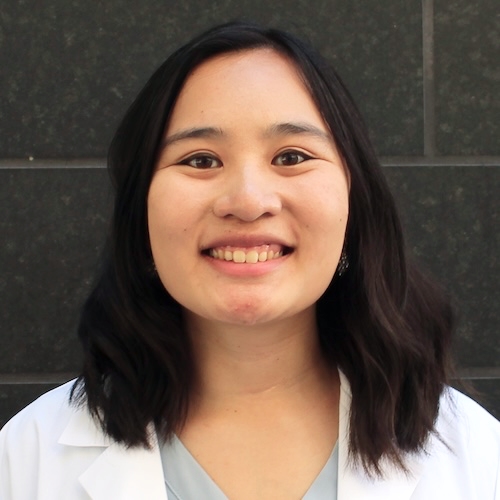
Alyssa Dharmawan
In the world of sports, the Summer Olympics represents a culmination of athletic skill, global unity, and cultural celebrations. Athletes from around the world compete in a diverse range of sports and foster a sense of global community, with the pursuit of excellence and sportsmanship. On July 8th, 2024, Global Initiatives and the Occupational Therapy and Science Council (OTSC) hosted a Summer Olympics event, where students from USC Chan and international OT students from the Summer Occupational Therapy Immersion (SOTI) Program came together and played summer-themed games. Teams were randomized to mix SOTI and Chan students, in order to foster camaraderie among the two groups.
From July 1–31, the 2024 Summer Occupational Therapy Immersion program welcomed 66 OT students and practitioners from 22 different countries across 5 continents. During this 4 week summer program, participants learn about occupational therapy and occupational science in the United States through lectures, site visits, and small group discussions while building global connections and meaningful relationships.
Serving as the Co-Chair for OTSC and working in the Global Initiatives office inspired me to form a committee to create a fun summer event for the USC Chan students and SOTI participants. OTSC’s E-OTD Representative, Catherine Picard, shares how the inspiration of the Summer Olympics contributed to its success: “The inspiration for creating the Summer Olympics stemmed from a desire to foster connections and camaraderie among Chan students from different cohorts, and partnering with Global Initiatives made it a natural choice to include SOTI students, providing a unique opportunity for everyone to socialize and have fun together. Creating a sense of community is integral to USC Chan’s mission, and the Summer Olympics offered a platform for friendly competition, shared experiences, and lasting connections.”
At the beginning of the event, all participants were divided into 5 teams, with each group coming up with a team name, such as Champions, Moho Madness, Pikachu, 4 the Win!, and Gimme 5!. Soon afterwards, teams rotated to play a variety of games such as water balloon tosses, ring toss, dodgeball, corn hole, and volleyball rallies.
Team MOHO Madness: Jowy Cenat, E-OTD ’26; Nourah Alflayyeh, Saudi Arabia; Tsz Ying (Sharon) Li, Hong Kong; Christy Yi, Hong Kong; Kelly Chang, Macau; and Angus Hoadley, Australia
The games ensured that all members of different skill levels and abilities could participate and have an opportunity to engage with their team members. Wing Gi (Venus) Leung, a SOTI participant from Hong Kong, shares her experience: “The Summer Olympics [was] fun [to] play sports without competing too much. Being a person who [isn’t] really into sports, my teammates actively involved me.”
Out of all the games played at the Summer Olympics, volleyball was the most popular. Crispin Huang, a SOTI participant from Hong Kong shares: “[V]olleyball was my favorite game. It was fun to keep the volleyball in the air without letting it touch the ground, despite the sun constantly shining into our eyes. It was both thrilling and hilarious — each time the ball wobbled in the air, my heart raced as I kept shouting to my teammates, ‘Just hit it high so the others have time to react!’ I couldn’t help but laugh at the near-misses and the countless fumbles. It was, of course, a very inclusive game, as it required participation from all team members, no matter our experience in volleyball. In the end, we managed to keep the ball in the air for over 23 hits, which, in my opinion, is quite a milestone as it was the first time for the majority of us to touch a volleyball.”
After teams completed each game, everyone was treated with OTterPops and had an opportunity to socialize and engage in more games, until the final game of the Summer Olympics: Tug of War. During the last game of tug of war, teams went head-to-head tournament style to see who would be the last team standing. The winners of the final game of Tug of War were awarded team prizes!
Megan Mills E-OTD ’26, Anne Kenney E-OTD ’26, Natalie Sanchez E-OTD ’26, and Miranda Marquez E-OTD ’26 enjoying OTterpops
It all came down to two teams: Champions and Gimme 5! The big question was which team would be crowned the winner of the Tug of War and take home the grand prizes? After an exhilarating match, Gimme 5! emerged as the winners, demonstrating amazing teamwork and strategy to come on top.
Winners of the Summer Olympics Tug of War team Gimme 5! Wing Sum (Kewpie) Chor, Hong Kong; Miranda Marquez, E-OTD ’26; Natalie Sanchez, E-OTD ’26; Weng U (Caroline) Chan, Macau; and Colton Fraser E-OTD ’26 with their prizes
After a fun-filled afternoon of games and socializing under the bright sun, the participants reflected on their experience participating in the Summer Olympics and fostering connections:
“I love [that] this event lets us interact with USC students by playing games. I particularly love tug of war because it gives off a team building atmosphere. When we work together it is easier to get closer with each other. I was impressed by the variety of games such as volleyball and water balloon tosses. [Overall] I love the event a lot.”
— Caroline Chan, Macau
“[The Summer Olympics] was a really fun way to get to know USC OT students! They were all so energetic and lovely. Plus it was nice to see how good friends you all were with each other as well.”
— Nourah Alflayyeh, Saudi Arabia
“[The Summer Olympics] was a lot of fun, I got to meet a lot of new people not only from the SOTI program, but also people from different cohorts from USC Chan. It was a great time playing games and trying to come up with strategies to win. My team got to know each other fast and recognized each other’s strengths and used that to our advantage. Just the overall team work and coming together was awesome! I loved how we were just cheering and rooting for each other the entire event. We all got so close and even exchanged contact info at the end to keep in touch.”
— Miranda Marquez, E-OTD ’26
Serving as the Co-Chair for OTSC and working in Global Initiatives places me in a unique position to foster relationships within the USC Chan community and build global connections with the SOTI participants. I am so honored to have an opportunity to build a sense of community locally and internationally through a shared love of the game with this event. The Summer Olympics would have not been possible without the hardwork and dedication from the incredible team of students from Global Initiatives and OTSC’s executive board members as well as the support of Dr. Danny Park. A special thank you goes to Bea Gee, Anna Glenn, Annika Pham, Catherine Picard, Keni Tsuno, Xiaorong Wang and Jackie Villa.
⋯






